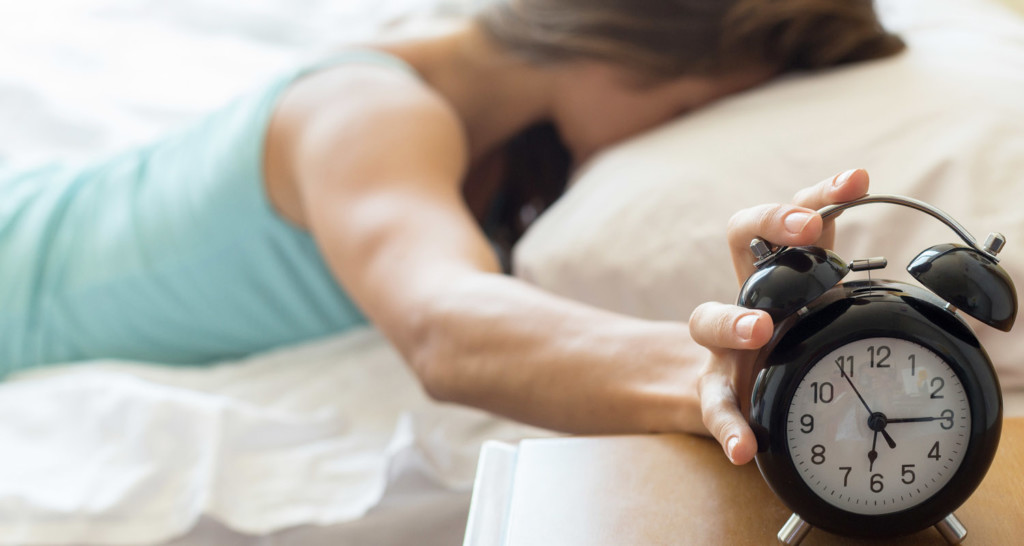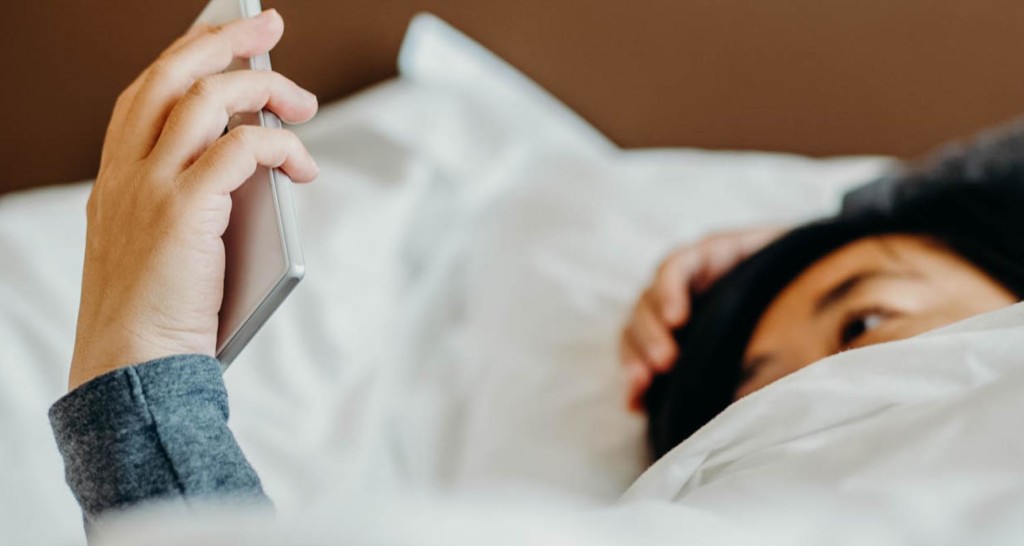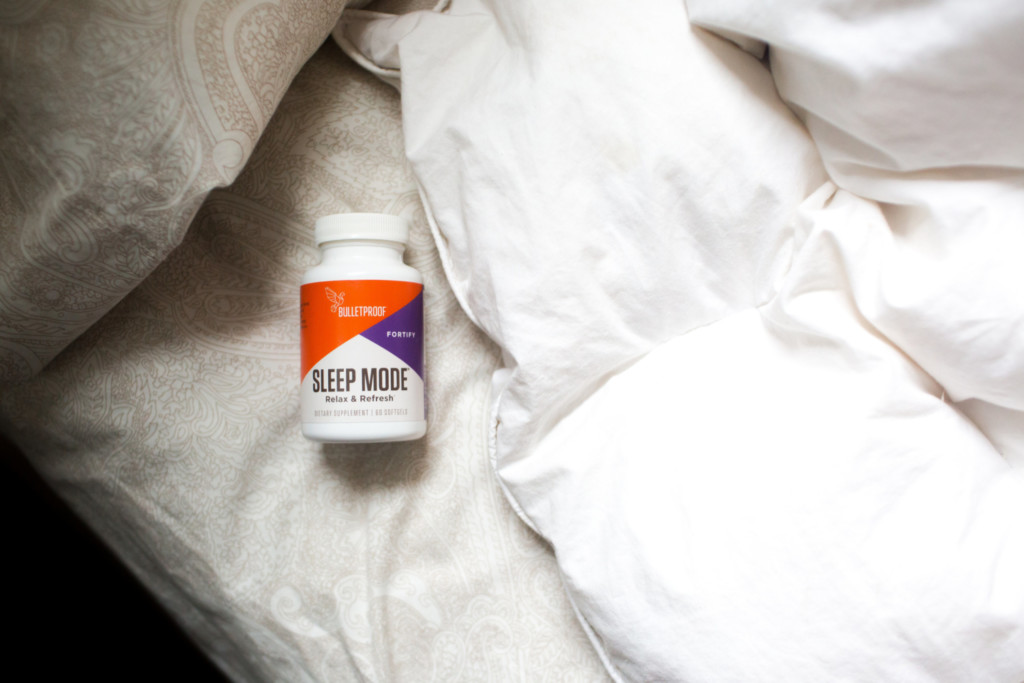
- Feeling groggy? Twice a year, daylight saving time throws your body out of whack.
- The human body follows a natural 24-hour cycle. Time shifts have been linked to increases in traffic accidents, heart attacks, and impaired sleep.
- You can get your biological clock back in sync with these biohacks.
- Regulate your light exposure, take bedtime supplements, hop in the shower, and upgrade your diet to be the boss of daylight saving time.
Feeling gross this morning? Blame the clock. Daylight saving time (DST) may give you an extra hour in the fall, but it also seriously messes with your internal clock.
Studies show that DST does more harm than good. Here’s how that hour difference impacts your body — and how you can hack your circadian rhythms to survive the change.
What’s the deal with daylight saving time?
Daylight saving time was put into place in the United States to help conserve fuel during World War I. By moving clocks forward in the spring, people could enjoy an extra hour of daylight without having to switch on the lights after work.
The problem is that the sun dictates your circadian rhythms — your body’s natural 24-hour clock. Messing with your sunlight exposure throws your systems out of whack. Learn more about circadian rhythms in this episode of the Bulletproof Radio podcast.
What the time shift does to your body
Sunlight plays a major role in your body. It triggers vitamin D production and makes you synthesize serotonin, the neurotransmitter linked to mood and well-being.[ref url=”https://www.ncbi.nlm.nih.gov/pmc/articles/PMC2077351/”]
Plus, humans are hardwired to fall asleep during dark hours: Melatonin, the sleep hormone, is naturally produced when it’s dark and stops when you’re exposed to sunlight.[ref url=”https://www.ncbi.nlm.nih.gov/pmc/articles/PMC2290997/”]
An hour’s difference may not seem like a big deal. But after each time shift, there are measurable changes to your sleep pattern that last up to five days.[ref url=”https://www.nejm.org/doi/full/10.1056/nejm199604043341416″]
Your body craves consistency, and messing with your sleep is bad news. One study suggests more people get into fatal accidents in the fall shift because they stay out later and drive home impaired.[ref url=”https://www.sciencedirect.com/science/article/pii/S1389945700000320″] Other studies have found that DST generally causes more traffic accidents due to sleep loss.[ref url=”https://www.sciencedirect.com/science/article/pii/S1389945700000320″] The shift may even increase your risk of heart attack.[ref url=”https://www.sciencedirect.com/science/article/pii/S0002914912024435″]
Related: 5 Quick Biohacks to Try This Weekend
How to get your biological clock in sync
With a few hacks, you can help your body make a smooth transition to DST without wrecking your internal clock. To learn more about sleep hacking, check out this article. Here’s what you can do today (and again in the spring).
Use light to your advantage
- Use UVB light: I’ve written before about the benefits of UVB waves. They cause less tissue damage than other ultraviolet rays while increasing vitamin D production in ways supplements can’t match. Sit under the lamp for 5 – 10 minutes, twice per week to reap the benefits of full-spectrum sunlight, even in the middle of winter.
- Regulate blue light: Switch on the lights as soon as you wake up. Small doses of blue light can actually help you wake up by stimulating light sensors in your eyes.[ref url=”https://www.ncbi.nlm.nih.gov/pmc/articles/PMC4734149/”] If you’re feeling down because of the earlier sunset, blue light can also reduce symptoms of seasonal affective disorder (SAD).[ref url=”https://www.sciencedirect.com/science/article/pii/S0006322305008577″]
- Try red light therapy: Red light might not help the winter blues, but it has tons of other benefits, like enhancing your mitochondrial function, increasing blood flow, and reducing skin inflammation. Plus, red light doesn’t interfere with your circadian rhythm in the evening.[ref url=”https://www.sciencedaily.com/releases/2017/08/170822103434.htm”] I recommend installing red lights in your home to use at night and therapeutically throughout the day.
Take bedtime supplements
Even if you have a great bedtime routine, it can be tough to fall asleep at your regular hour during DST. Supplements can help.
Your body naturally produces melatonin at night. Supplementing with added melatonin can help you wind down and fall asleep faster. The problem is that most melatonin supplements use too-high doses, which can negatively impact your body’s natural production levels over time.
Look for a plant-derived form of melatonin around 0.3 milligrams, which is just enough to help you fall asleep without interfering with your body’s natural hormone levels. Bulletproof Sleep Mode even includes L-ornithine to reduce stress and Brain Octane Oil to fuel your body with ketones while you snooze.
Related: The Best Sleep Supplements
Block junk light
Blue light in the morning can help you wake up, but too much at night can keep you awake by suppressing the production of all-important melatonin. At bedtime, protect your eyes (and your sleep quality) by making your room as pitch-black as possible — think blackout curtains and shutting off electronics.
It’s a good idea to limit your screen time throughout the day in general, but once the sun sets, switch to night mode on your devices and install light filter apps like f.lux or Iris. These settings adjust the color temperature of your screens to reduce blue light exposure. Check out the video below to learn how to change the light settings on your phone.
Light-blocking glasses like TrueDark prevent blue light wavelengths from messing with your circadian rhythm. Think of them as noise-canceling headphones for your eyes — they filter away junk light so your body can produce melatonin like normal.
Shower
Having trouble waking up in the morning while you adjust to DST? Shock your system with a cold shower. Cold exposure increases the production of norepinephrine, a hormone that plays an important role in your body’s sleep-wake cycle.[ref url=”https://www.ncbi.nlm.nih.gov/pubmed/17993252″] Cold showers have tons of other benefits, too, including increased fat burning and better mood.
Conversely, a warm shower or bath at night can help you fall asleep faster. As you cool off, your body temperature falls, which is a natural signal that it’s time to sleep.[ref url=”https://www.ncbi.nlm.nih.gov/pubmed/10979246″] Toss some epsom salt in your bath water for extra calming benefits.
Tweak your diet
Unless you enjoy tossing and turning all night, don’t eat any big meals two hours before bedtime. If you’re following Bulletproof Intermittent Fasting, you finish eating around 8 p.m., which strengthens your cells, boosts weight loss, and increases energy. Putting down the fork before sundown also reduces your cancer risk.
Can’t fall asleep on an empty stomach? Following an anti-inflammatory, low-toxin diet like the Bulletproof Diet can help regulate your blood sugar, which reduces late-night cravings. But if you routinely wake up feeling ravenous up at 3 a.m., try taking a tablespoon of Brain Octane Oil or a small amount of raw honey an hour before bed. These hacks fuel up your brain so you can sleep all the way through the night.













